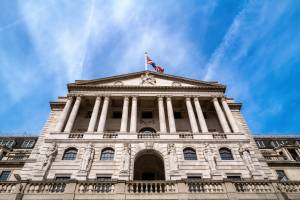It’s quite unnerving, really. We’re five days from filing our divorce papers to the EU to enter one of the most uncertain periods of a generation, but the markets and economy have been lulling in a state of tranquillity. I didn’t realise peace could be this stressful.
The faltering Trump trade – belief the American President will generate growth – lost its footing this week, waking the markets from their long slumber. Despite this, measures of volatility are still close to all-time lows.
Markets can seem to have short memories. This abnormal period of calm wouldn’t be sustainable in usual circumstances, let alone with such uncertainty on the horizon. Volatility is a fact of life.
So, there I was this morning, newspapers splayed across the kitchen table, wondering if these seemingly bullet-proof markets can withstand further rounds of uncertainty, or whether we’re witnessing the calm before the Brexit storm.
With Theresa May’s finger hovering above the Article 50 trigger button, the noise is increasing and tensions are rising.
The seatbelt sign is on
The reason I can hop on a plane to Paris to see my friend from university for cheaper than I can get the train to see family in Scotland is because the EU ripped up old regulation restrictions and competition has increased on European routes.
But the future of UK-based airlines is hanging in the balance, as tough EU chiefs have warned they may need to relocate to keep continental routes, or sell off shares to European nationals. Not only are UK jobs on the line, but the UK could retaliate with similar restrictions.
Whilst this could force UK businesses to develop their subsidiaries, it’s likely this tough stance will dampen investment in the UK in the short term, challenging the airline industry.
When our family holiday is already costing more following the post-referendum slump in the pound, signs the EU is going to be tough during renegotiations doesn’t bode too well for travel.
Banks
It wasn’t just the airlines making headlines this week, the banks have been nabbing space as well. Theresa May made it clear she wants to pull Britain from the single market, which allows certain countries to trade without restrictions and tariffs. Currently the financial capital of Europe, there are concerns this could leave London isolated.
It’s no secret financial groups have already been reviewing plans to relocate some personnel to the continent after Brexit, and the EU has just sweetened the pill by looking to fast-track applications after the divorce.
If around £1.26 trillion of assets are moved out of the UK after Brexit, the capital could lose up to 10,000 banking roles and 20,000 financial services jobs, think tank Bruegel estimates. Of course, no one has a crystal ball and estimates range widely – but this doesn’t fill me with confidence. If these numbers are accurate, how will it impact the economy?
Final countdown
We know the long divorce process will be triggered by Article 50 on Wednesday 29 March; everything else is merely well-researched guesswork.
Even though volatility has been low for a long time, as I wrote before, it’s a fact of life. So, take a breath and play the long game. With the latest inflation figure reaching 2.3% but rates of 0.25%, staying out of the market isn’t as safe as it used to be. To smooth out any bumps in the road, make sure your portfolio is diversified across investments and asset classes. See you on the other side!





